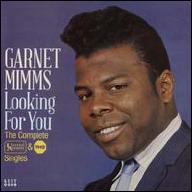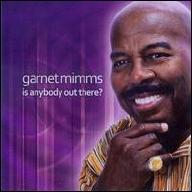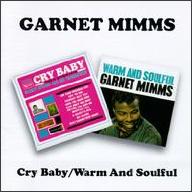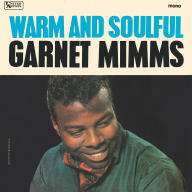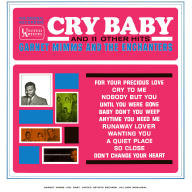Mimms subsequently served several years in the military, and upon his release, he returned to Philadelphia in 1958 and formed a doo wop quintet called the Gainors, whose ranks included Sam Bell and onetime Evening Star Howard Tate (later an acclaimed solo singer in his own right). The Gainors recorded singles for several labels over the next three years, including Red Top (later picked up by Cameo), Mercury (from 1959-1960), and Tally Ho (1961). Failing to produce a hit, Mimms left the group along with Bell and put together Garnet Mimms the Enchanters, which were completed by Charles Boyer and Zola Pearnell. Thanks to Dick Clark's #American Bandstand program, Philadelphia had become a haven for teen idols, and Mimms took his group to New York in 1963 in search of a more receptive scene. There they met songwriter/producer Bert Berns, who signed them to United Artists and teamed them with another songwriter/producer, Jerry Ragovoy.
Mimms quickly struck gold with the proto-soul performance of Cry Baby, a smash hit that reached the pop Top Five and topped the RB charts in 1963. The follow-up, a cover of Jerry Butler the Impressions' For Your Precious Love, hit the pop Top 40 later that year, as did the flip side, Baby Don't You Weep. Mimms and the Enchanters parted ways in 1964; the group to record separately with a new lead vocalist, while Mimms cut solo sides for UA steadily over the next few years. Ragovoy's productions became increasingly polished, mirroring the shift in RB spearheaded by Motown, yet Mimms' vocals retained all the fire of his gospel training, making for a combination that was fairly unique for the time. Minor hits like It Was Easier to Hurt Her and I'll Take Good Care of You (the latter Mimms' last Top 40 hit in 1966) didn't perform nearly as well commercially as their quality seemed to indicate. In 1967, United Artists moved him to their Veep subsidiary, where My Baby was another inexplicable flop (it, too, was later covered by Janis Joplin on Pearl).
Mimms subsequently followed Ragovoy to Verve, where he recorded four singles to little response; ditto for his brief stint at MGM. Mimms did make one last minor chart appearance in 1977, recording for Arista as Garnet Mimms the Truckin' Company; the disco-funk single What It Is was produced by Brass Construction mastermind Randy Muller. Mimms retired from the music business permanently after becoming a born-again Christian. ~ Steve Huey, Rovi


